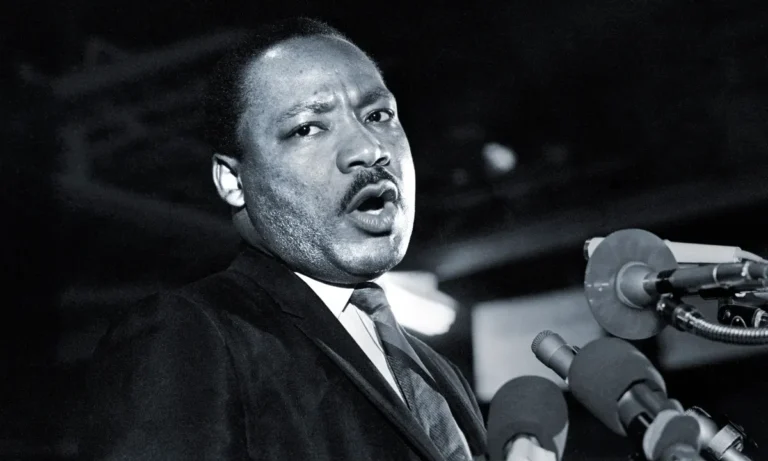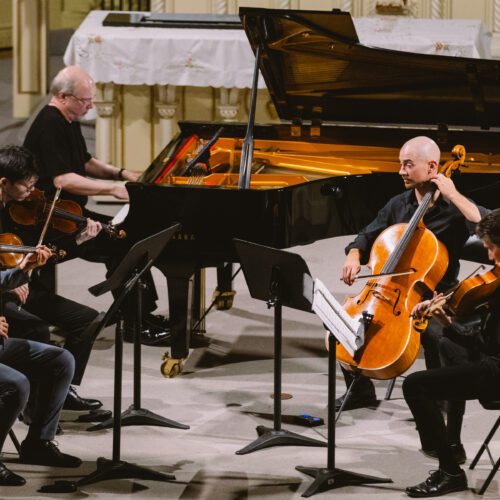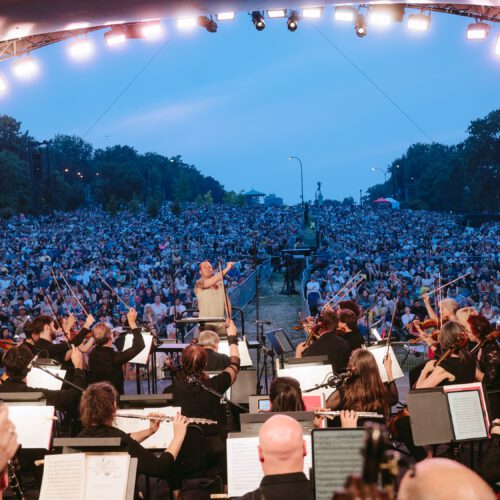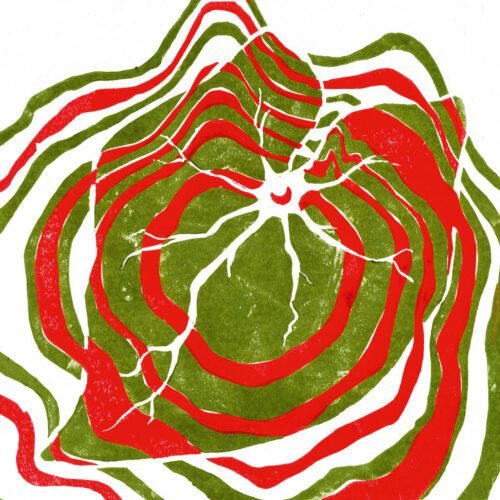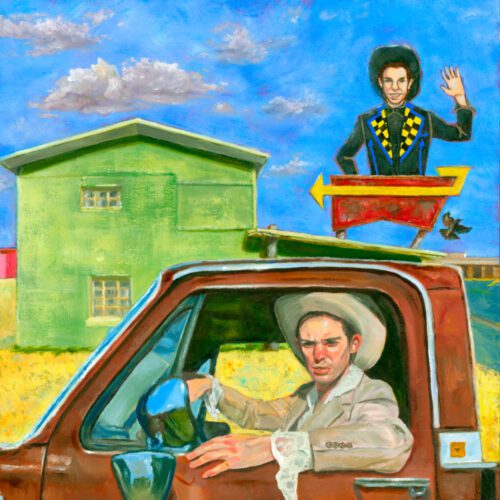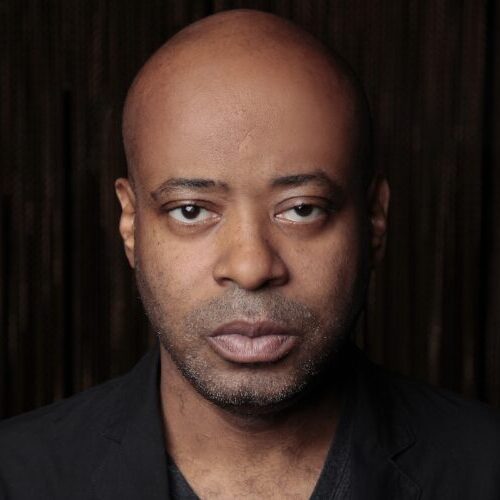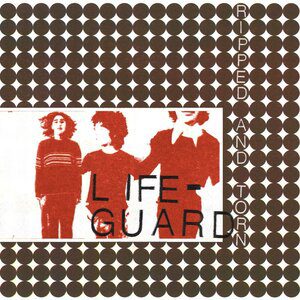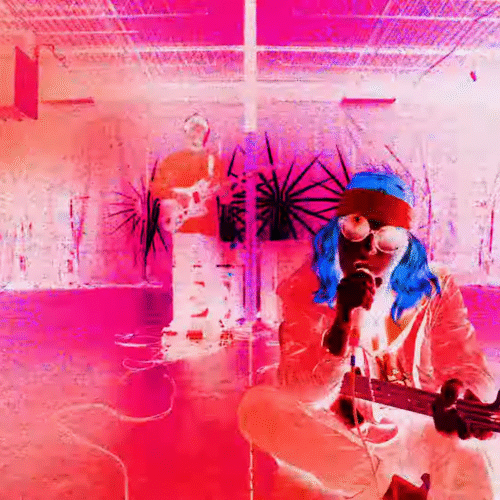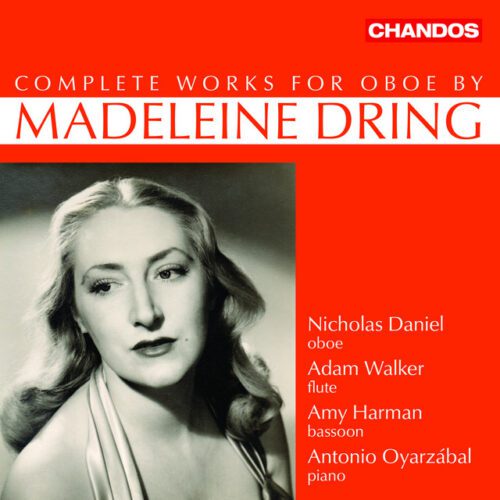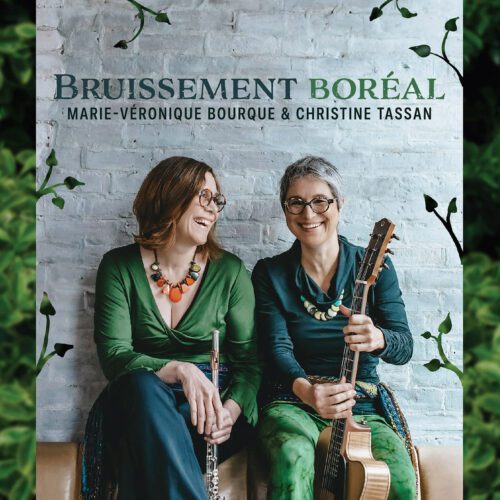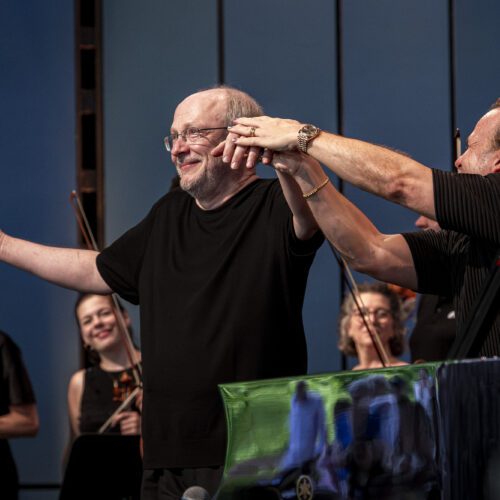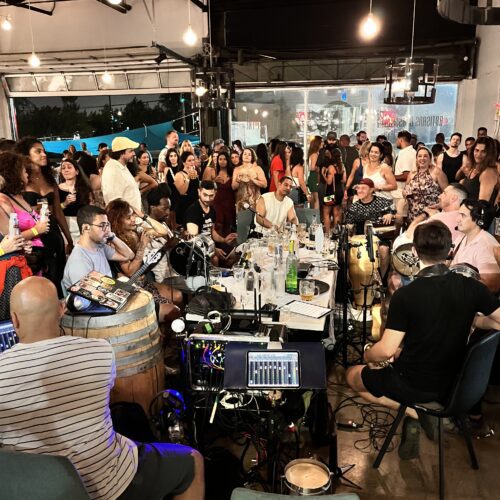Martin Luther King Jr. Day is celebrated every third Monday in January, not only in the United States but also here in Canada. Last night, Montreal held its commemorative event with a concert in McGill University’s Tanna Schulich Hall. The concert featured a work by John Hollenbeck for three trombones, drums, piano, accordion, electric guitar, marimba and vibraphone, The Drum Major Instinct: Three Settings of MLK Jr’s Last Sermon. The premise is as follows: based on a recording of MLK’s (Martin Luther King) last sermon, given on 3 April 1968 in a Memphis church, two months before his assassination, composer Hollenbeck, who is also a McGill professor, created three different sound worlds, built around a balance between improvisation and written score.
The sermon itself is a convincing example of Martin Luther King’s oratorical genius. Using a passage from the Bible, he built an entire narrative around the principle of the Drum Major Instinct, which can be summed up as each person’s desire to lead the parade, to be better than others, or even superior. He deploys this discourse effectively thanks to his remarkable oratorical ability to build tension and evolving emotion that leads to an effective and meaningful paroxysm. MLK opens the perspective to the issues of the time and of his struggles, namely a condemnation of the Vietnam War and racial inequalities (the Drum Major Instinct of white people leads them to believe they are superior). Aesthetically speaking, it’s a hell of a success. Hollenbeck wrote his three versions on this basis, and they are performed one after the other. So we hear the same speech three times, with different musical accompaniments, as if to show just how adaptable it can be in every conceivable way. On this subject, I would point out that, with all due respect for MLK’s immense verbal skills, listening to the same religious preach, albeit with a strong political, humanistic and philosophical bent, becomes tiresome. Those who don’t like the religious proselytizing that lurks behind the dramatically intense chanting of “Jesus!!!!” will end up being very irritated. Warning.
Musically, though, Hollenbeck’s (you can find his Bandcamp page here) approach is fascinating and highly stimulating. The first iteration, for trombones and drums in the dark, attempts to create an atmosphere of conflict and opposition. The three brass instruments make abstract declamations using improvised dots and dashes of sound, what I call pointraitism (Points and Traits, or lines), typical of avant-garde art music. It’s not jazz, then, but contemporary music informed by jazz, as inflections here and there hint at the universe from which the subject comes, that of Black reality in the 1960s. The drums (Hollenbeck himself) accompany this sequence in a very discreet, restrained way.
The second version is the opposite. Gone are the trombones and drums, welcome are accordion, electric guitar, vibraphone, marimba and piano (Hollenbeck again). The light returns to a gentle, almost ethereal world. The effect is remarkable: MLK’s speech, heard a second time, takes on a different personality. The humanist tendencies are more noticeable, and the lyrics are more audible! It sounds like something between ambient minimalism and Feldmanian etherism (Morton Feldman, the great unclassifiable composer of the 20th century). Very fine work by the accordionist and guitarist, who let delicate and sustained notes percolate through the framework.
The third version calls everyone on stage, in a kind of syncretic ecumenism between the power of the trombones and the gentleness of the other instruments. This time, however, the three brass instruments are less abstract, and more singing, with more obvious reminiscences of jazz and even blues. The final minutes resemble a marching band parade that finally dissolves into a kind of funeral march. Luther King had only two months to live.
Warm applause for the excellent musicians on stage: Ed Neumeister, Kalun Leung, Felix Del Tredici, trombone; Gentiane Michaud-Gagnon, accordion; Oliver Tremblay-Noël, marimba/vibraphone; Roman Munoz Bueno, electric guitar; John Hollenbeck, drumkit and piano.
The end result is impressive and thought-provoking because the Drum Major Instinct evoked by MLK has not disappeared from the world – quite the contrary. While I found Hollenbeck’s writing a joy to behold, I do wonder about the hierarchy that eventually permeates the whole thing. The threefold repetition of MLK’s speech (over and above the caveat mentioned earlier in connection with the religious preacher’s mute), to which the music is subservient, means that the Drum Major Instinct evoked by MLK is ultimately monopolized by the text, to the detriment of the score. Instead, the score takes on the role of a soundtrack, commenting a little, but without being able to fulfill its much greater potential. Clearly, I would have liked not to hear the sermon a third time (at least), and to let the music transcend, even sublimate, MLK’s words. That is the immense power of music, which words, even from one of the greatest orators in history, cannot match, or at least not in the same way. I would have loved to have been able to delve into myself, to cogitate on the meaning and depth of MLK’s speech through music alone. I think that would have been even more effective than hearing the recording over and over again. At a certain point, it ends up sounding like the worst kind of religious sermonizing: forcing things into our heads through incessant and deeply tiresome repetition.
Please don’t misunderstand me: John Hollenbeck’s The Drum Major Instinct: Three Settings of MLK Jr’s Last Sermon is a superior work, perhaps an authentic masterpiece. But it’s his music that takes MLK’s text into new realms of meaning, beyond even what the speaker could have foreseen. Not the other way around. So it is only my sincere wish that this work be put forward more equitably, in recognition of its great musical quality.
For the full programming of the Schulich School of Music, click HERE!
